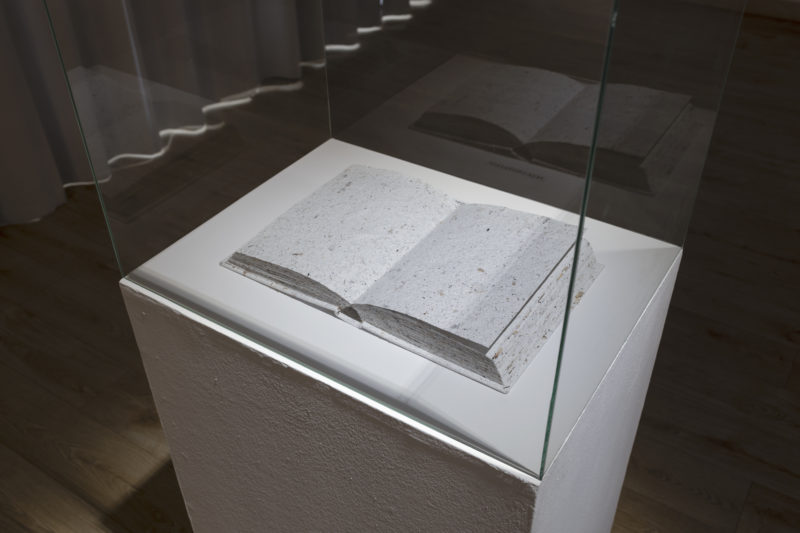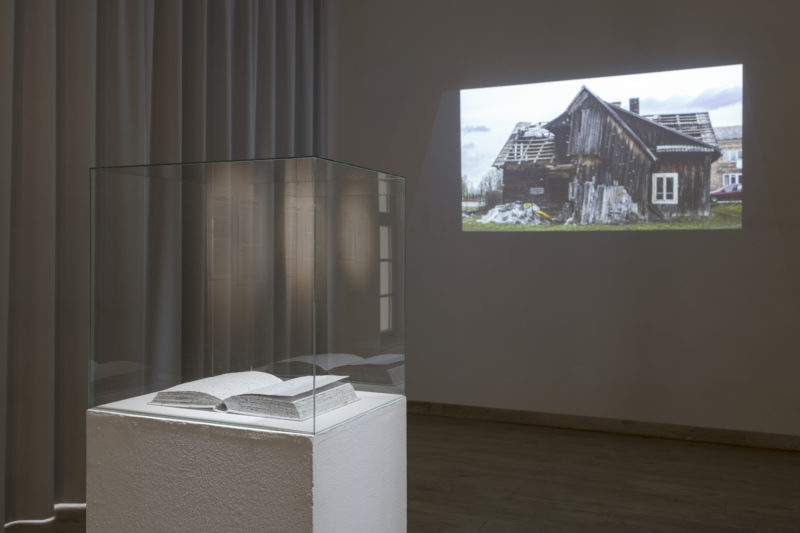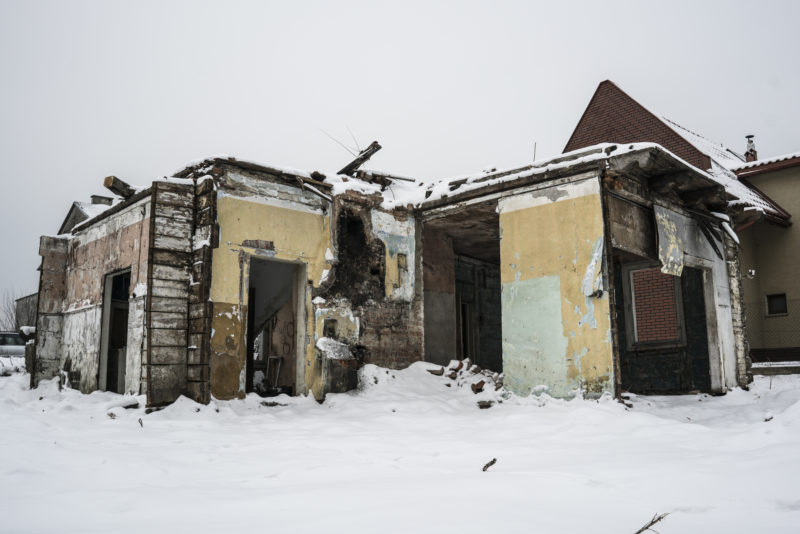
Cover to Cover. Book House
Dominika Macocha


Dominika Macocha’s modest, disciplined object is the quintessence of sublimation and denial. The small white book is a result of a complex, multistage process condensing a full range of problems. The material the artist used to create the book were planks from the former Jewish inn destroyed by the people of Biłgoraj after the war. The white pages of the book, an object which is essential to all monotheistic religions in the world, symbolize the power that culture and history exercise over nature.
The technological and industrial character of the transformation that the wood of the planks was subjected to has also its magical and symbolic significance. It is a process parallel to the construction of an idealized picture of an ethnically homogeneous community which, in order to restore social harmony, removes the memory of the Jewish residents. The final liquidation of material remains – the rotten and charred planks – revealed violence behind the new order, all in the process of production of elegant paper, almost like the removal of inconvenient eyewitnesses. In her description of the project, the artist shows direct analogies between the binary vision of the world still separating nature from culture, and mechanisms of extermination: “The matter I use is continually in the process of formation. The black, charred surface of the planks is a manifestation of their organic nature. The main element wood is composed of has been explicitly highlighted. Carbon is present in all living organisms, it is a chemical foundation of life. It tells stories of humans and nonhuman beings. However, the outer, fire-devoured structure of the planks is also associated with destruction, decomposition, death. Using that logic, we may clash with anti-Semitic stereotypes. The black, the earth, the decay are all saturnine attributes – parts of the anti-Semitic myth of foetor Judaicus, the Jewish stench. Similarly, locating the phantasm of a Jew within the field of nature, assuming the separation of nature from culture, leads to the reinforcement of Jewish exclusion, as extensively described by Konrad Matyjaszek. In such a configuration, Jews are dehumanized, becoming non-humans, threats, parasites, leeches, sources of epidemics, as opposed to the majority – a group which is their antithesis, occupying the realm of culture. The absence of Jews in Poland is seen as a natural thing, just as the destruction of a house seems only a result of the way nature takes its course”.

Dominika Macocha is a graduate of Intermedia at the Academy of Fine Arts in Gdańsk. She received her MA degree in prof. Grzegorz Klaman’s and dr Dorota Nieznalska’s Studio of Transdisciplinary Activities in 2016. The project work was nominated for the ArtNoble competition in 2016 for the best art school diploma. In the academic year 2014-2015, she was granted the Mayor of Gdańsk Award in Culture, and the Best Intermedia Student title at the Faculty of Sculpture and Intermedia of the Academy of Fine Arts in Gdańsk. In 2017, she was a resident of the Artists’ Colony Foundation in Gdańsk. She obtained her BA degree at the University of Information Technology and Management in Rzeszów, Journalism and Social Communication, specializing in computer graphic design in the media. Since 2018, she has been junior lecturer at the Department of Computer Graphics of the University of Information Technology and Management. She also supervises the Gustav Metzger Photographic Science Club there.